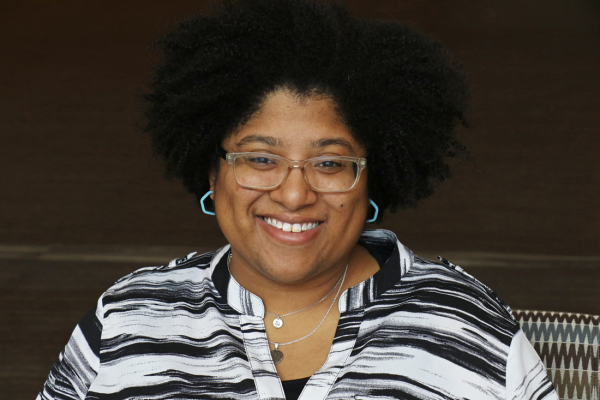
A.L. Haynes | Contributing Writer
What makes a family? How is an identity built? Who is important and why? The Old Globe’s original commission, Shutter Sisters asks all these questions and more in 90 minutes of engrossing, relatable storytelling.
Centered around two women adopted from the same agency in the 1960s, Shutter Sisters is a two-woman slice-of-life that quietly emphasizes how race issues in America hurt everyone. The first parallel, then intersecting stories of Mykal (Terry Burrell) and Michael (Shana Wride) weave together the past and the present to highlight how much has changed…and how much hasn’t.
The story is birthed when a white family adopts a Black baby in the mid-1960s, only to bow to social pressure and racism, reversing the adoption weeks later. They re-entered the process and adopted a white baby the following year. Unlike many other Black children in the system then and now, the Black baby was fortunately placed with another family.
It is telling that the race of the family that adopts the Black Mykal, is never revealed. It is a strange point of silence in a play that doesn’t shy away from the discussion of race. It is a point of silence that emphasizes both how irrelevant race is in love and family, and how much American society obsesses over what should be a simple fact of birth.

Yet that “simple fact” has a profound effect on self-identity. An open secret of adoptions initially revealed by The Race Card Project and investigated by NPR is that, even in 21st-century America, Black children are cheaper to adopt than any other racial group. According to the Institute for Family Studies (IFS), the number of children adopted by parents of a different race or ethnic group increased by 50% between the late 1990s and the 2010s.
“What has not changed,” IFS continued, “is that a large majority of adoptive parents are white, older, well-educated, and relatively affluent” and that African-American children are far less likely to be adopted. A 2017 Berkley report found that Black children enter into the child welfare system at higher numbers and leave to “achieve permanency” (adoption) at lower rates proportionally than any other group. The approximately 61% fall in Black adoptions in the last decade is attributed, in part, to the debate over cross-race adoption, especially white parents and Black children. Are white parents equipped to prepare Black children for America’s inequities? Some in the Black community don’t think so.
Shutter Sisters touches on this unbalanced system without over-emphasizing it, instead focusing on the shared struggles of both women as adoptees, and how it has affected their lives. On the surface, Michael has had an easier life, but we see the mental and emotional struggles she is still working through. Mykal, by contrast, has developed a healthier mental state, taking her struggles in stride, maintaining her ethics, and enjoying her triumphs.
Meeting first by chance, then in the course of Michael’s obsessive search for identity, the women’s intersecting lives could create a rift between them. Instead, Mykal extends a hand of friendship that provides healing for both of them.
Lit with moments of genuine humor and true emotional sincerity, Shutter Sisters is well worth the trip. Written by famous Black playwright Mansa Ra and directed by Donya K. Washington, Shutter Sisters is playing at The Old Globe until November 7th, 2021.



